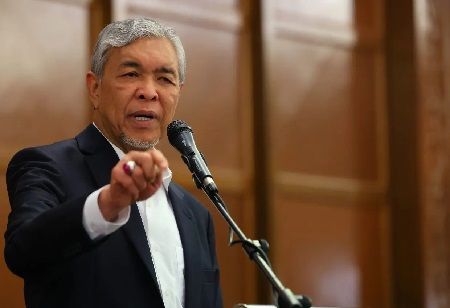- The Malaysian Qualifications Agency (MQA) has introduced new guidelines enabling smoother transitions between TVET and non-TVET academic programmes, including certifying Master and Doctor of Professional Practice at MQF Levels 7 and 8.
- Deputy Prime Minister Ahmad Zahid Hamidi said the initiative elevates TVET to the same level as conventional academic streams, supports IR 4.0 readiness, and includes new industry-focused programmes in Data Science and Cybersecurity.
- The move is expected to boost Malaysia’s status as an international education hub, with increasing global accreditations, stronger industry-academia partnerships, and curricula aligned with market demands.
Malaysian Qualifications Agency (MQA) has launched new guidelines to facilitate more seamless transitions between Technical and Vocational Education and Training (TVET) and non-TVET academic programmes, in what has been described as a game-changer for Malaysia's education sector.
Deputy Prime Minister Datuk Seri Dr Ahmad Zahid Hamidi said the move is intended to eliminate structural obstacles which in the past have restricted TVET graduates from advancing to higher degrees. He thanked MQA for certifying Master of Professional Practice and Doctor of Professional Practice at MQF Levels 7 and 8, describing it as game changing in the educational landscape of Malaysia.
Ahmad Zahid stressed that the initiative puts TVET streams on a par with conventional academic streams without sacrificing quality. He emphasized the need to develop graduates who are internationally accredited and equipped with the ability to succeed in every industry sector. In his speech at the MQA Awards 2025 ceremony witnessed by Higher Education Minister Datuk Seri Dr Zambry Abd Kadir and MQA CEO Professor Datuk Dr Mohammad Shatar Sabran, he pointed out the Articulation Programme, which allows Malaysian Skills Certification certificate holders to proceed with their studies at higher levels.
Also Read: Keysight Empowers SGS for Skylo NTN Certification Testing
In his capacity as National TVET Council chairman, Ahmad Zahid emphasized the need for preparation for the swift changes resulting from the Fourth Industrial Revolution (IR 4.0) and developments in artificial intelligence. He called on educational institutions to keep their curricula contemporary, their research meaningful, and their graduates prepared with future-proof competencies like computational thinking and data literacy.
He lauded the initiative of introducing industry-focused curricula and new programmes in Data Science and Cybersecurity, and said further collaborations with world technology companies will further enhance Malaysia's ability to provide future-ready education.
The deputy prime minister highlighted the growing number of international accreditation of Malaysian programmes as proof of the country's advancement in international education space. He also acknowledged the role of private institutions, which are developing flexibility in curricula and forging robust industry partnerships to link education with marketplace demands. Showing faith in Malaysia's increasing attractiveness as an international education hub, Ahmad Zahid reiterated the government's position on making Malaysia a destination of choice for students from across the globe.

